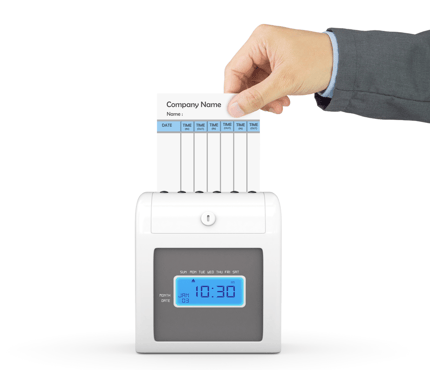Blog
The Power of 'Why': One Question that Leads to Better Client Relationships
By Carsten Bosselman, Associate Producer They say the love of money is the root of evil. It’s a shame that we, as learning professionals, can’t use ...


Four Beginner’s Tips for Managing Project Budgets
By Carsten Bosselman | January 26, 2017 | Custom Learning | 0 Comments
By Carsten Bosselman, Associate Producer
 They say the love of money is the root of evil. It’s a shame that we, as learning professionals, can’t use this argument when discussing the all-too-sensitive topic of budgets. Imagine the reactions of your key stakeholders when you walk into your project kick off meeting and say, “Don’t be stingy—can I have an unlimited budget on this project?”
They say the love of money is the root of evil. It’s a shame that we, as learning professionals, can’t use this argument when discussing the all-too-sensitive topic of budgets. Imagine the reactions of your key stakeholders when you walk into your project kick off meeting and say, “Don’t be stingy—can I have an unlimited budget on this project?”
Unfortunately, the reality project managers face is that project budgets are set and it is up to us to be effective stewards with what we’ve been given—effective being the key word. It is easy to spend money. It is another thing to juggle timelines, resources, risks, and other unforeseen challenges and remain within budgetary standards. Budget management mastery is much more of an art than a science. While I consider myself a novice in this area, I have identified four tips that I’ve been learning as a project manager at Allen Interactions that have helped me manage project budgets.
1. Use a Budgeting Tool
Perhaps this is a no-brainer, but having and using a budgeting tool is crucial to be a good steward of your budget. A plethora of corporate software with varying functionality, complexity, and costs is out there, but even Microsoft® Excel® can meet most project managers’ needs. The saying “out of sight, out of mind” rings true for budget management—I know from personal experience that the “keep a running track of my expenses by memory” method never works. A budgeting tool will help stop your budget from slipping away from you.
2. Monitor Hours Worked
 Time is money when creating learning solutions. You can be efficient and agile with your budget usage by consistently monitoring your team’s time contributions to a project. Again, many tools will calculate this for you, but it can be as simple as having your team members record the time they’ve contributed toward a specific task of your project on a weekly basis. I’m certainly not recommending obsessively looking over your instructional designers’ shoulders, but getting a consistent pulse check of time spent will make it easier to foresee where tasks are taking longer than expected, allowing you to adjust allotted time from later phases to try and make up for lost time.
Time is money when creating learning solutions. You can be efficient and agile with your budget usage by consistently monitoring your team’s time contributions to a project. Again, many tools will calculate this for you, but it can be as simple as having your team members record the time they’ve contributed toward a specific task of your project on a weekly basis. I’m certainly not recommending obsessively looking over your instructional designers’ shoulders, but getting a consistent pulse check of time spent will make it easier to foresee where tasks are taking longer than expected, allowing you to adjust allotted time from later phases to try and make up for lost time.
3. Reduce Expenses
An obvious tip to efficiently managing your project budgets is to reduce expenses. This is much easier said than done. Here are a few practical tips I’ve been learning:
-
Limit your project scope. Sometimes, the easiest way to cut costs is by cutting out or reducing components of your project, especially those that will cost more money.
-
Get creative in your delivery method. Do you spend crazy amounts of money printing classroom materials for your face-to-face training? Try a virtual classroom or elearning! Are technical expenses, such as LMS administration, overtaking your elearning budgets? Consider blended or full instructor-led delivery approaches.
-
Use more affordable tools. We all know premier tools and software are pricey. However, there are many quality products available for the budget-conscious! Allen Interaction’s ZebraZapps authoring tool is a great, affordable alternative to expensive products because it is subscription-based, meaning you pay for it when you need it. Smartsheets, a great work management tool, offers a free trial period. Want to add photos or sound effects to your project? Pixabay.com and freesound.org offer free downloadable images and sound clips released under Creative Commons licenses.
4. Make a Case for a Budget Increase
 There are times when reducing expenses isn’t enough, and it becomes necessary to request a budget increase for your project. This is a difficult situation to be in, so it is critical to present a strong, clear case to your key stakeholders, emphasizing how the budget increase will benefit the learners and the bottom line. Have this conversation sooner rather than later. Requesting an increase one week before deploying your learning solution most likely will not fly with stakeholders!
There are times when reducing expenses isn’t enough, and it becomes necessary to request a budget increase for your project. This is a difficult situation to be in, so it is critical to present a strong, clear case to your key stakeholders, emphasizing how the budget increase will benefit the learners and the bottom line. Have this conversation sooner rather than later. Requesting an increase one week before deploying your learning solution most likely will not fly with stakeholders!
Chances are slim to none for being assigned a project with an unlimited budget. While project managers may perceive that budgets are designed to torture us slowly, when you get down to it, budgets instill efficiency, accountability, and stewardship. And while my budgets may not always be flexible, my attitude towards improving my budget management skills can, and should be.
LIKE WHAT YOU'VE READ? SHARE THE KNOWLEDGE WITH THIS READY-MADE TWEET!
 CLICK TO TWEET: Four Beginner’s Tips for Managing Project Budgets http://hubs.ly/H060FCj0 #aiblog by @customelearning
CLICK TO TWEET: Four Beginner’s Tips for Managing Project Budgets http://hubs.ly/H060FCj0 #aiblog by @customelearning
About the Author: Carsten Bosselman
Comments
Would you like to leave a comment?
Related Blog Posts

By: Carsten Bosselman | Apr, 2022
Category: Custom Learning, Project Management

Blog
5 Lessons for Designing Engaging e-Learning Interactions from Project Runway
By Carsten Bosselman, Associate Producer They say the love of money is the root of evil. It’s a shame that we, as learning professionals, can’t use ...
By: Carsten Bosselman | Jan, 2016
Category: Custom Learning

Blog
Tips to Tame Troublemaker Schedules
By Carsten Bosselman, Associate Producer They say the love of money is the root of evil. It’s a shame that we, as learning professionals, can’t use ...
By: Carsten Bosselman | Jun, 2018
Category: Custom Learning

